Ford Transit Connect vs Hyundai Staria – Which model is better for everyday use?
Both models have their strengths – but which one suits you more?
Compare performance, efficiency, price and space directly: Ford Transit Connect or Hyundai Staria?
Costs and Efficiency:
Price and efficiency are often the first things buyers look at. Here it becomes clear which model has the long-term edge – whether at the pump, the plug, or in purchase price.
Ford Transit Connect has a clearly advantage in terms of price – it starts at 26700 £, while the Hyundai Staria costs 42400 £. That’s a price difference of around 15704 £.
Fuel consumption also shows a difference: Ford Transit Connect manages with 0.50 L and is therefore convincingly more efficient than the Hyundai Staria with 7.60 L. The difference is about 7.10 L per 100 km.
Engine and Performance:
Power, torque and acceleration are the classic benchmarks for car enthusiasts – and here, some clear differences start to show.
When it comes to engine power, the Hyundai Staria has a noticeable edge – offering 225 HP compared to 150 HP. That’s roughly 75 HP more horsepower.
In acceleration from 0 to 100 km/h, the Hyundai Staria is a bit quicker – completing the sprint in 10.20 s, while the Ford Transit Connect takes 11.40 s. That’s about 1.20 s faster.
In terms of top speed, the Ford Transit Connect performs a bit better – reaching 186 km/h, while the Hyundai Staria tops out at 167 km/h. The difference is around 19 km/h.
There’s also a difference in torque: Hyundai Staria pulls minimal stronger with 367 Nm compared to 350 Nm. That’s about 17 Nm difference.
Space and Everyday Use:
Whether family car or daily driver – which one offers more room, flexibility and comfort?
Seats: Hyundai Staria offers significantly more seating capacity – 9 vs 5.
In curb weight, Ford Transit Connect is clearly lighter – 1477 kg compared to 2275 kg. The difference is around 798 kg.
In maximum load capacity, the Ford Transit Connect performs clearly better – up to 3700 L, which is about 2397 L more than the Hyundai Staria.
When it comes to payload, Ford Transit Connect barely noticeable takes the win – 792 kg compared to 775 kg. That’s a difference of about 17 kg.
Who comes out on top?
Overall, the Ford Transit Connect shows itself to be is largely superior and secures the title of DriveDuel Champion.
It convinces with the more balanced overall package and proves to be the more versatile choice for everyday use.

Ford Transit Connect
Ford Transit Connect
The Ford Transit Connect is a versatile compact van that seamlessly combines functionality with a comfortable driving experience. Its spacious interior is designed to accommodate both passengers and cargo, making it an ideal choice for small businesses and active families alike. With its efficient engine and agile handling, the Transit Connect offers a reliable and economical option for urban and suburban driving.
details @ media.ford.com
@ media.ford.com
 @ media.ford.com
@ media.ford.com
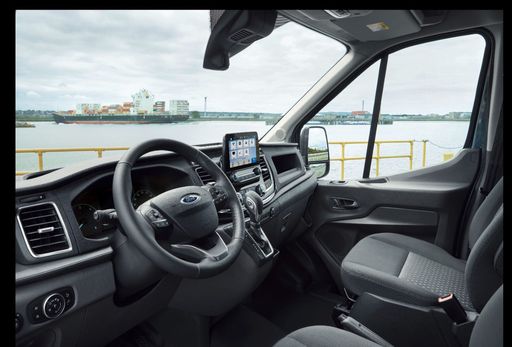 @ media.ford.com
@ media.ford.com
Hyundai Staria
The Hyundai Staria stands out with its futuristic design, characterised by sleek lines and an expansive front grille that makes a bold statement on the road. Inside, it offers a spacious and versatile interior, providing a comfortable ride for both driver and passengers. This vehicle effortlessly combines practicality with a touch of luxury, appealing to families and professionals alike.
details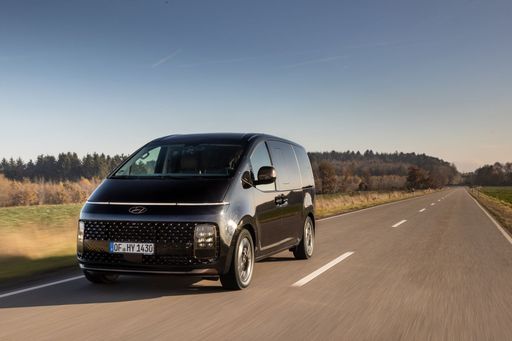 @ hyundai.news
@ hyundai.news
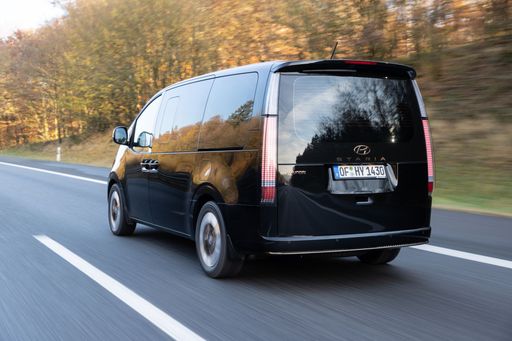 @ hyundai.news
@ hyundai.news
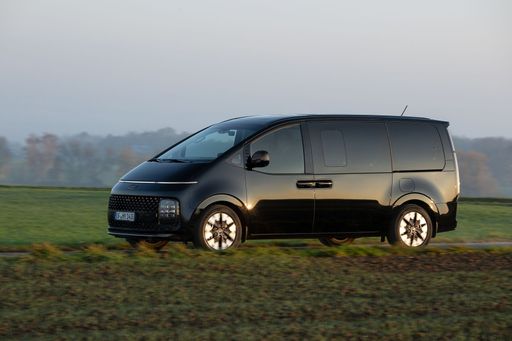 @ hyundai.news
@ hyundai.news
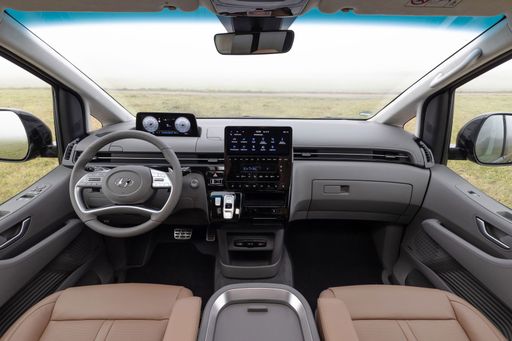 @ hyundai.news
@ hyundai.news
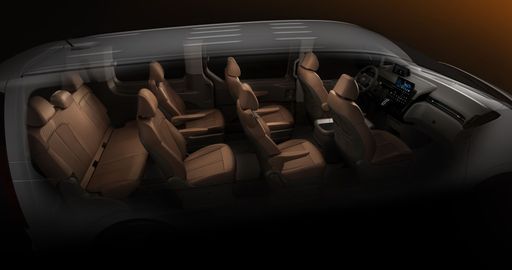 @ hyundai.news
@ hyundai.news
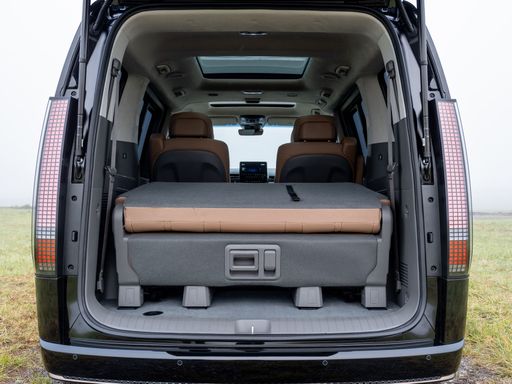 @ hyundai.news
@ hyundai.news

|

|
|
|
|
Costs and Consumption |
|
|---|---|
|
Price
26700 - 41500 £
|
Price
42400 - 50500 £
|
|
Consumption L/100km
0.5 - 5.8 L
|
Consumption L/100km
7.60 L
|
|
Consumption kWh/100km
-
|
Consumption kWh/100km
-
|
|
Electric Range
118 km
|
Electric Range
-
|
|
Battery Capacity
19.70 kWh
|
Battery Capacity
-
|
|
co2
11 - 153 g/km
|
co2
172 g/km
|
|
Fuel tank capacity
32 - 50 L
|
Fuel tank capacity
65 L
|
Dimensions and Body |
|
|---|---|
|
Body Type
Cargo Van
|
Body Type
Bus
|
|
Seats
2 - 5
|
Seats
7 - 9
|
|
Doors
4
|
Doors
5
|
|
Curb weight
1477 - 1866 kg
|
Curb weight
2275 - 2345 kg
|
|
Trunk capacity
-
|
Trunk capacity
117 - 831 L
|
|
Length
4500 - 4868 mm
|
Length
5253 mm
|
|
Width
1855 mm
|
Width
1997 mm
|
|
Height
1856 - 1860 mm
|
Height
1990 mm
|
|
Max trunk capacity
2500 - 3700 L
|
Max trunk capacity
431 - 1303 L
|
|
Payload
602 - 792 kg
|
Payload
605 - 775 kg
|
Engine and Performance |
|
|---|---|
|
Engine Type
Diesel, Plugin Hybrid
|
Engine Type
Full Hybrid
|
|
Transmission
Manuel, Automatic
|
Transmission
Automatic
|
|
Transmission Detail
Manual Gearbox, Dual-Clutch Automatic
|
Transmission Detail
Automatic Gearbox
|
|
Drive Type
Front-Wheel Drive, All-Wheel Drive
|
Drive Type
Front-Wheel Drive
|
|
Power HP
102 - 150 HP
|
Power HP
225 HP
|
|
Acceleration 0-100km/h
11.4 - 13.5 s
|
Acceleration 0-100km/h
10.20 s
|
|
Max Speed
175 - 186 km/h
|
Max Speed
167 km/h
|
|
Torque
280 - 350 Nm
|
Torque
367 Nm
|
|
Number of Cylinders
4
|
Number of Cylinders
4
|
|
Power kW
75 - 110 kW
|
Power kW
165 kW
|
|
Engine capacity
1498 - 1968 cm3
|
Engine capacity
1598 cm3
|
General |
|
|---|---|
|
Model Year
2024 - 2025
|
Model Year
2024
|
|
CO2 Efficiency Class
E, B
|
CO2 Efficiency Class
F
|
|
Brand
Ford
|
Brand
Hyundai
|
What drive types are available for the Ford Transit Connect?
The Ford Transit Connect is available as Front-Wheel Drive or All-Wheel Drive.
The prices and data displayed are estimates based on German list prices and may vary by country. This information is not legally binding.
